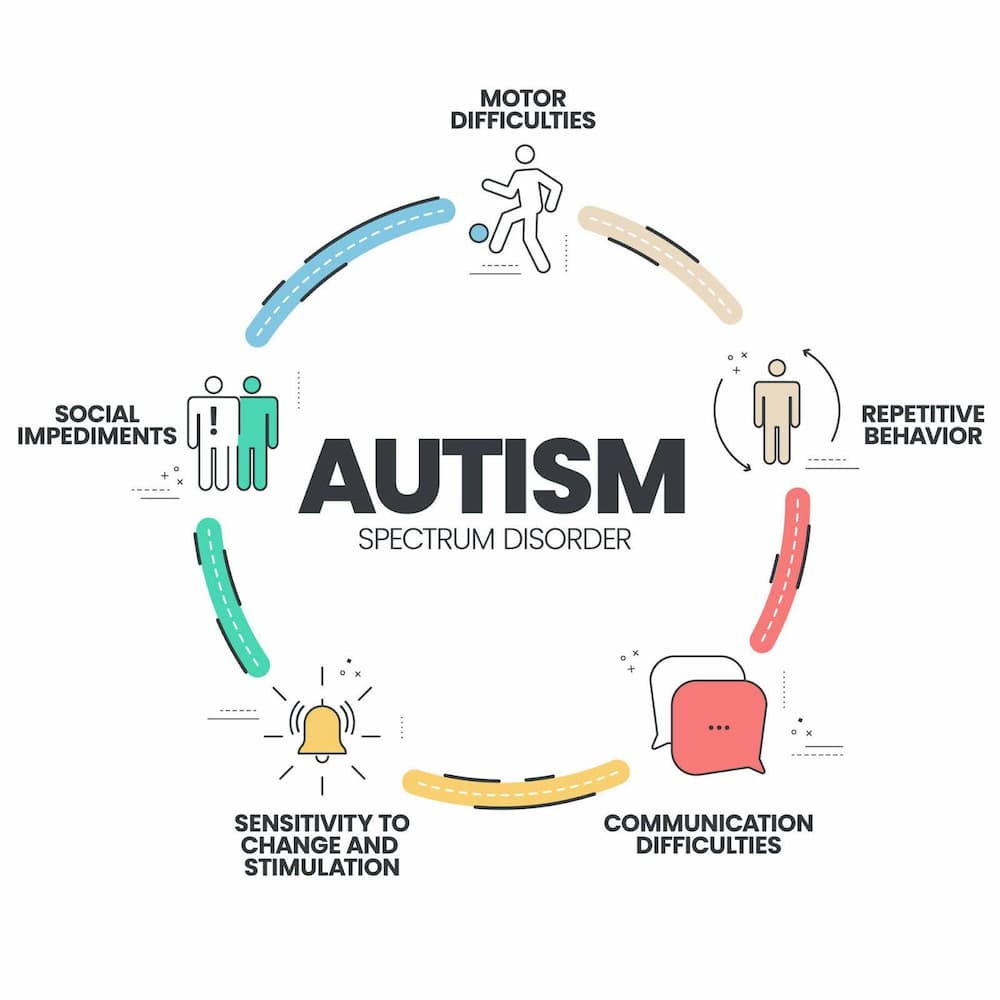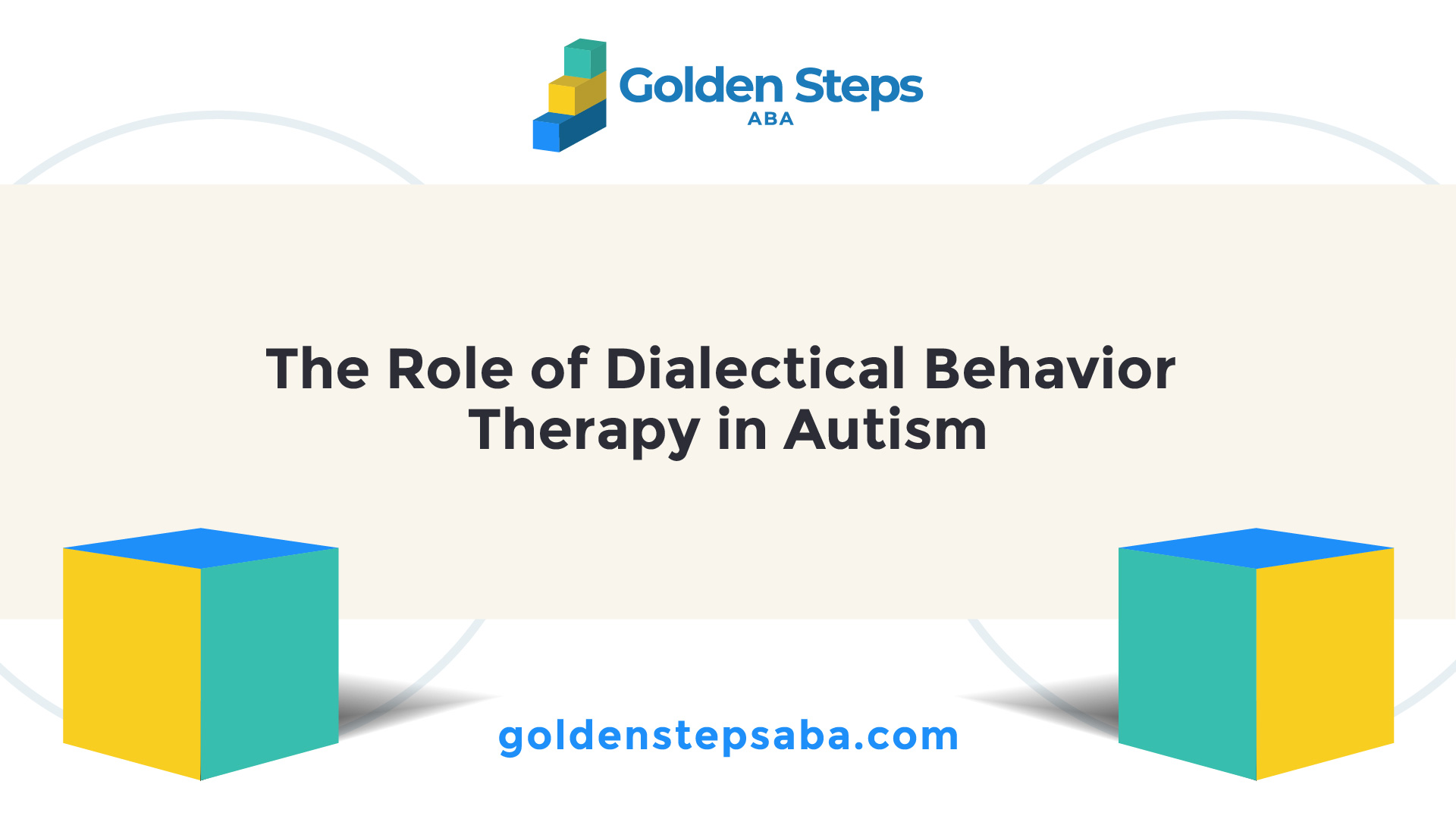Key Indications and Signs And Symptoms to Recognize in People With Behavioral Autism
When you run into someone with behavioral autism, recognizing vital symptoms and signs is essential. You may see challenges in social interactions and communication, along with a solid need for routines. Furthermore, sensory level of sensitivities can lead to overwhelming experiences. Comprehending these attributes can boost your support and treatments, yet there's more to uncover about exactly how these habits materialize in day-to-day scenarios. Allow's discover what these indicators really look like.
Obstacles in Social Communications
When you interact with a person on the autism range, you may discover they struggle with social signs and communication. These difficulties can make social interactions feel frustrating for them.
Additionally, you may find that they prefer regimens and familiar setups, which can restrict their desire to participate in new social scenarios. When they do engage, they may speak about their interests in great detail without seeing if you're interested. This can bring about prejudiced discussions that leave you feeling disconnected. Recognizing these challenges can aid you approach communications with empathy and perseverance, promoting an extra comfortable setting for both of you.
Difficulty With Verbal and Non-Verbal Interaction

Non-verbal communication can be also more difficult. You may see an absence of eye call or limited use of motions, which can make communications really feel unpleasant. Face expressions may not constantly line up with the discussion, resulting in confusion regarding their feelings. Acknowledging these indicators is vital, as it helps you far better assistance and engage with people on the autism spectrum. By recognizing their communication obstacles, you can foster a lot more meaningful connections and supply an extra encouraging environment.
Recurring Habits and Regimens
Interaction challenges usually come with other indicators of autism, such as repeated actions and a strong choice for routines. You could discover that people with autism frequently take part in particular, repetitive actions, like hand-flapping, shaking, or repeating phrases. These actions can offer convenience and a sense of control in an usually overwhelming globe.
Routines are similarly vital; numerous people thrive when they comply with an organized routine. You might find that modifications to these routines can result in substantial distress. If they have an everyday routine of eating morning meal at a specific time or following a certain course to school, any kind of disruption can cause stress and anxiety.
Acknowledging these patterns assists you recognize their actions and provide support. By accommodating their need for routine and allowing repetitive actions, you can create a much more comfortable setting that relieves their difficulties.
Sensory Sensitivities

Typical Sensory Triggers
Sensory level of sensitivities can significantly impact day-to-day live for people with autism, as particular stimulations usually activate frustrating responses. Typical sensory triggers include loud sounds, brilliant lights, and strong scents. You might notice that abrupt noises, like sirens or alarm systems, trigger anxiousness or distress. Fluorescent lights in stores can feel severe and uneasy. Textures can also play a considerable duty; rough textiles or certain food appearances might be intolerable for you. Additionally, crowded areas can overwhelm your senses, making it tough to focus or kick back. Comprehending these triggers can aid you manage your atmosphere better. By being aware of what influences you, you can take actions to reduce discomfort and enhance your everyday experiences.
Behavior Feedbacks Explained
Comprehending your behavioral responses to sensory level of sensitivities is vital, as they typically expose exactly how you communicate with the world. You might likewise find yourself seeking details sensory experiences, like deep stress or quiet settings, to aid ground on your own. Identifying these patterns helps you comprehend your requirements better and can lead how you communicate them to others.
Coping Techniques Review
Recognizing your sensory level of sensitivities is just the first action; now it's time to check out coping strategies that can aid you handle those experiences efficiently. Beginning by producing a sensory toolkit customized to your needs. This can include noise-canceling earphones, fidget toys, or relaxing fragrances. Establishing a structured regimen can likewise offer predictability, lowering anxiousness around sensory overload. When you really feel overloaded, take breaks in a silent room to regroup. Practicing mindfulness strategies like deep breathing can assist ground you in the minute. Additionally, connect your needs with those around you; having encouraging loved ones can make a significant difference. Keep in mind, discovering what functions best for you may require time, so be patient and open to trying brand-new methods.
Limited Interests and Focus
While numerous individuals create a variety of rate of interests, those with autism often demonstrate restricted interests and an intense concentrate on certain subjects. You may see that someone with autism can invest hours delving into their preferred subject, whether it's a specific type of train, a details flick, or a clinical principle. This extreme emphasis isn't just a pastime; it can end up being a central part of their identity and social communications.
You may find that discussions rotate around these interests, and they might have a hard time to engage in more comprehensive subjects. By understanding and recognizing these restricted interests, you can cultivate a supportive environment where they really feel valued and comprehended, enabling for even more purposeful links and interactions.
Psychological Policy Troubles
Individuals with autism usually deal with obstacles in emotional law, which can be influenced by their intense concentrate on details interests. You may notice that when an individual is deeply engaged in a favored task, they can experience solid emotions, whether enjoyment or frustration. When points do not go as intended., this intensity in some cases makes it difficult for them to move equipments or handle their sensations - Autism Spectrum Therapies.

Variability in Developing Turning Points
When it comes to developing landmarks, you'll discover that individuals with autism usually reveal a broad more info variety of variability. You may see a youngster excel in language skills however battle with social interactions.
It's vital to acknowledge that each person's journey is distinct. Observing these patterns can help you recognize their strengths and needs better.
Regularly Asked Questions
How Is Autism Identified in Children and Grownups?
To diagnose autism in grownups and children, professionals assess actions, interaction skills, and social communications. If an individual meets the criteria for autism range condition., they frequently use standardized tests, interviews, and monitorings to figure out.
Are There Various Sorts Of Autism Spectrum Disorders?
Yes, there are different kinds of autism range conditions, consisting of Asperger's syndrome and prevalent developing disorder-not or else defined. Each kind varies in severity and qualities, so understanding these differences can assist you far better assistance individuals with autism.
What Therapies Are Effective for Individuals With Autism?
When thinking about efficient therapies for individuals with autism, you'll locate choices like Applied Actions Evaluation, speech more info therapy, and work-related therapy. Each strategy can aid boost communication, social skills, and day-to-day working tailored to specific needs.
Can Individuals With Autism Lead Independent Lives?
Yes, people with autism can lead independent lives. With the right support, abilities training, and resources, you can aid them establish self-sufficiency, manage everyday tasks, and grow in different settings, promoting their independence.
Exactly How Can Families Assistance Loved Ones With Autism?
You can sustain your loved ones with autism by producing a structured atmosphere, urging their rate of interests, exercising persistence, cultivating communication, and advertising social skills. Celebrate their success, regardless of website just how small, and construct a supportive neighborhood.
Although many individuals on the autism range can use and comprehend language, they frequently deal with significant difficulties with both non-verbal and spoken communication. Identifying these indicators is vital, as it aids you better support and involve with people on the autism range. You might discover that people with autism usually engage in particular, repetitive activities, like hand-flapping, shaking, or repeating phrases.Sensory sensitivities can substantially impact daily life for individuals with autism, as specific stimulations usually trigger overwhelming reactions.When it comes to developmental turning points, you'll observe that individuals with autism often reveal a broad variety of irregularity.
Comments on “How an Autism Therapist can enhance everyday life for those managing ASD”